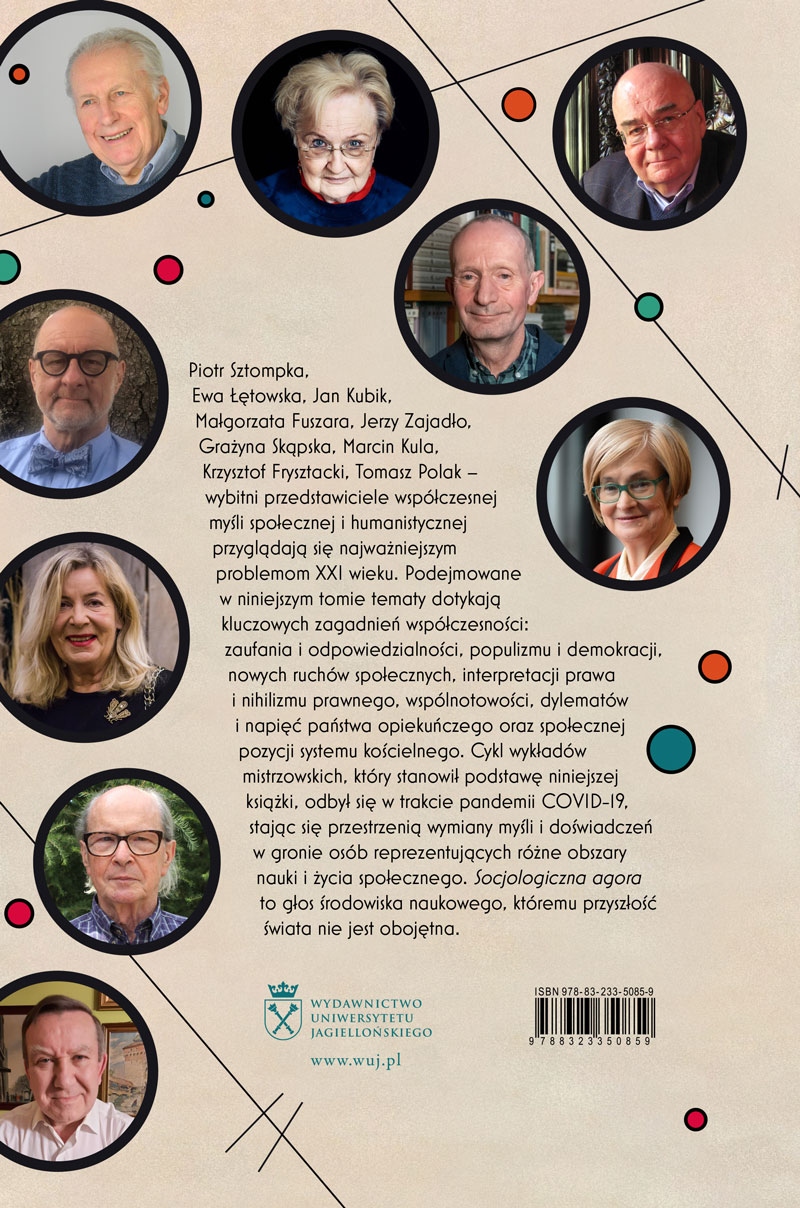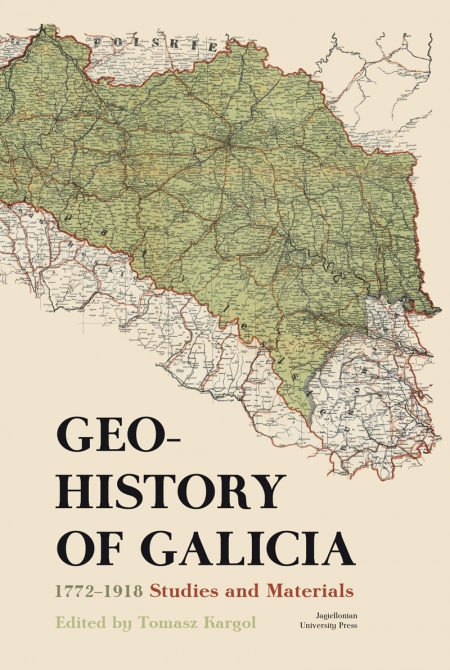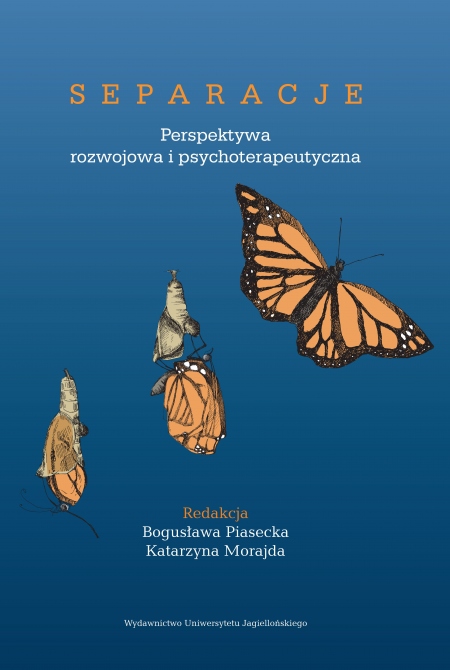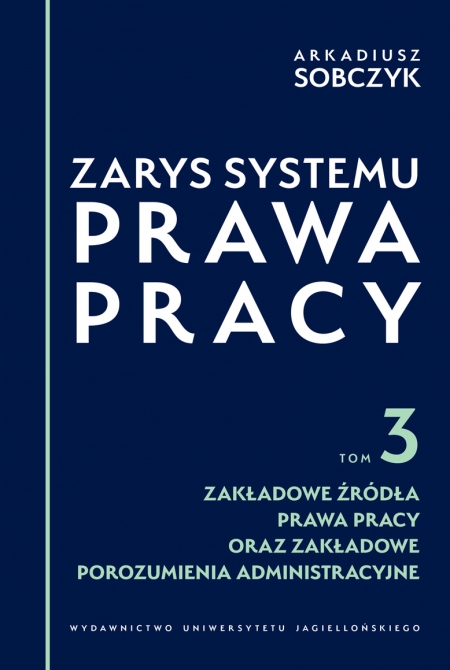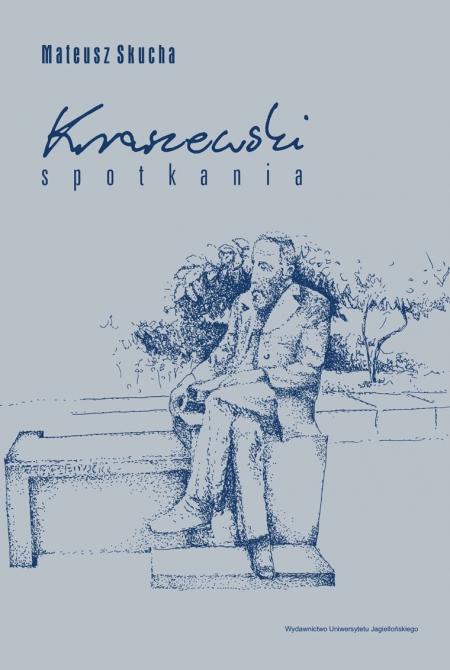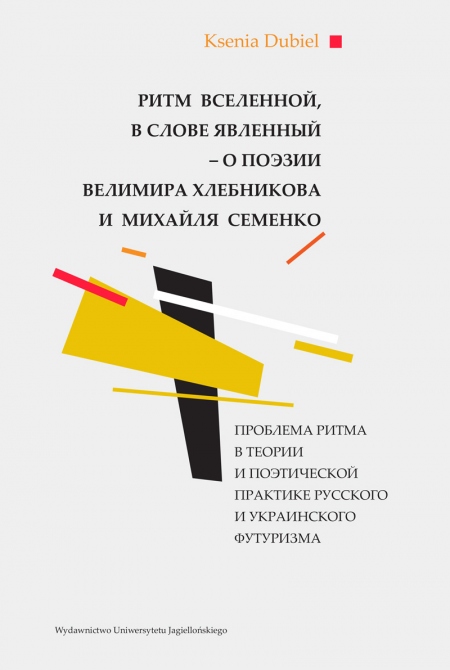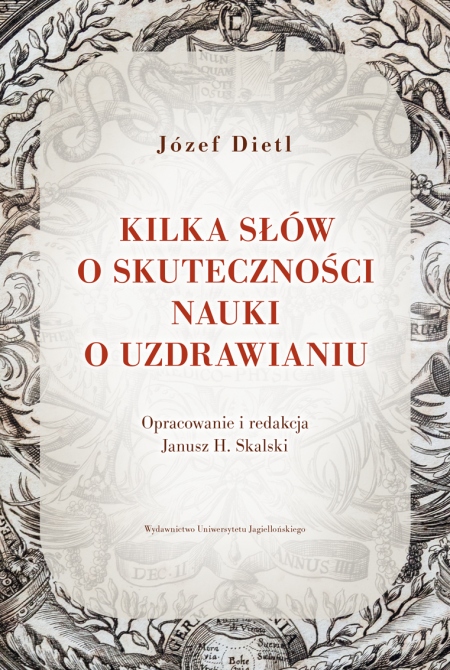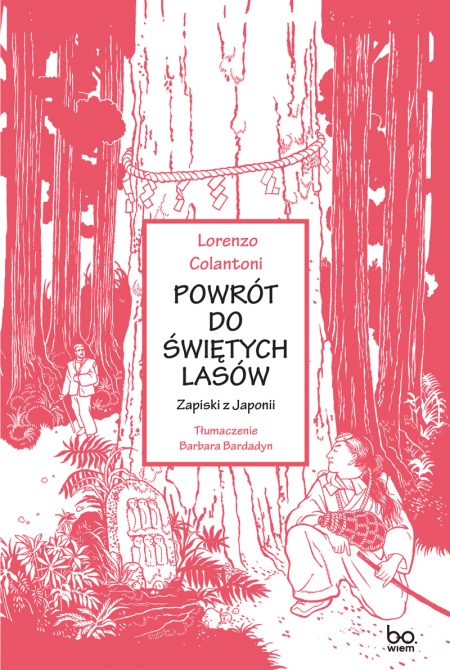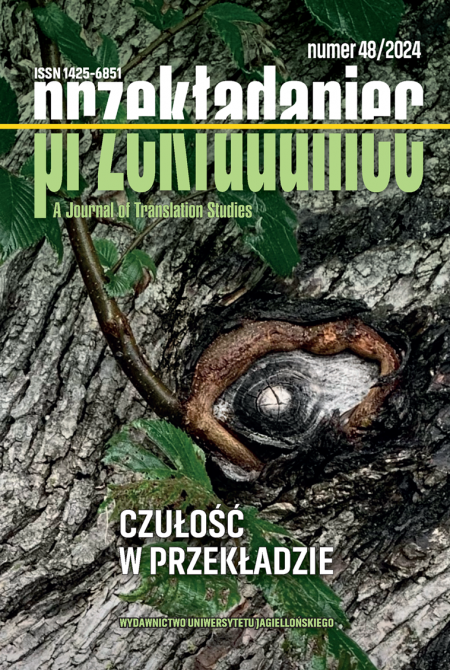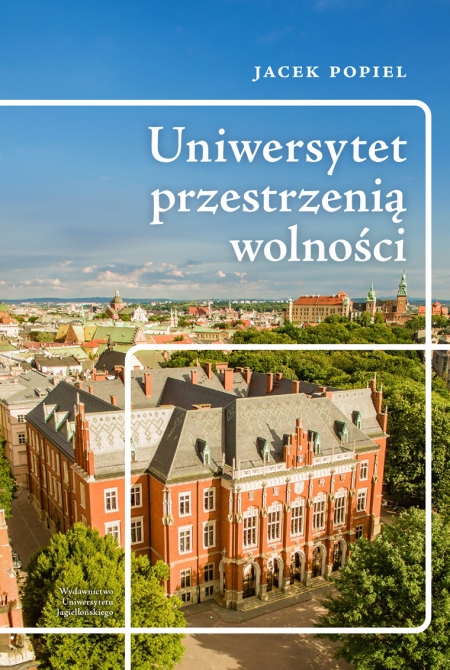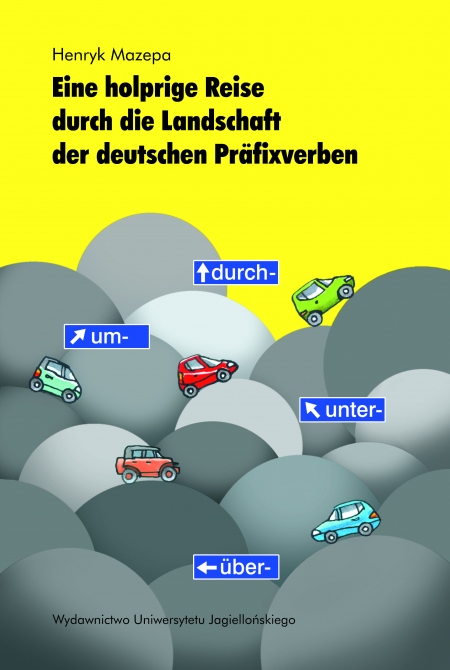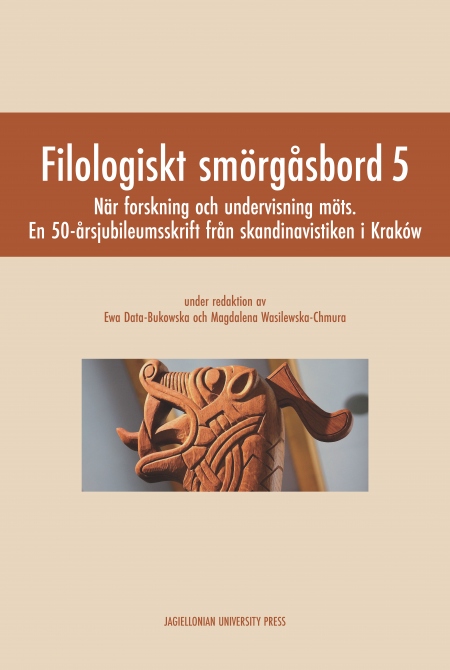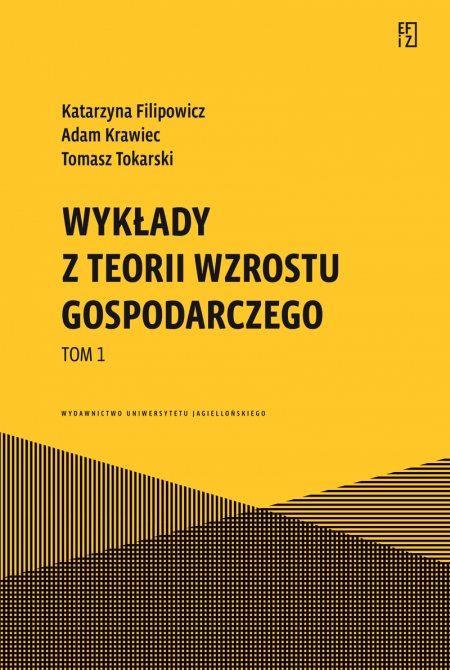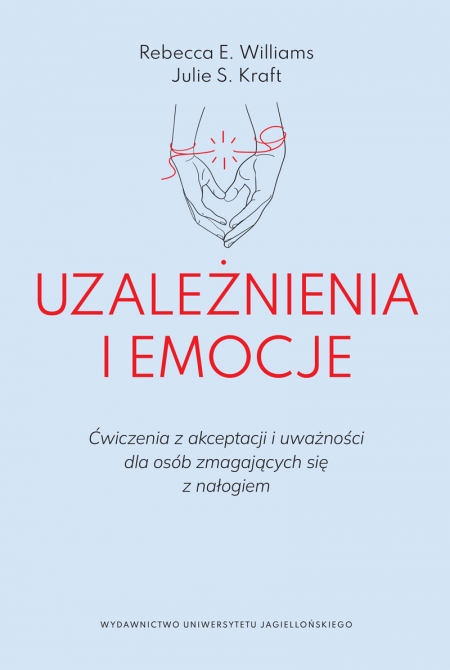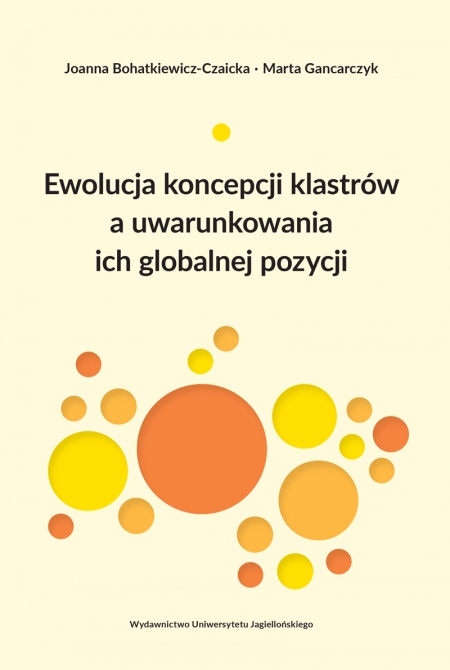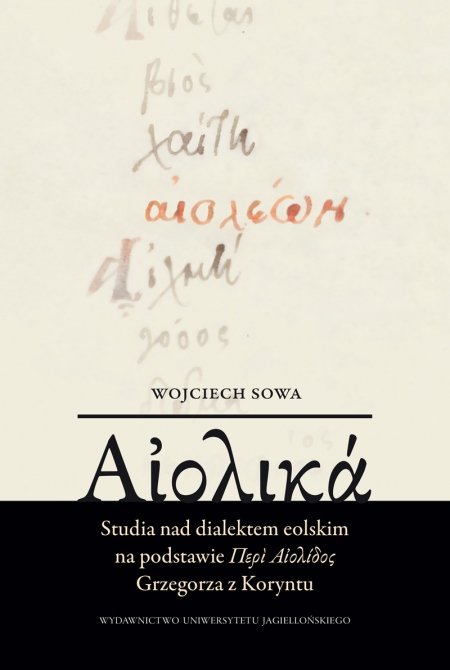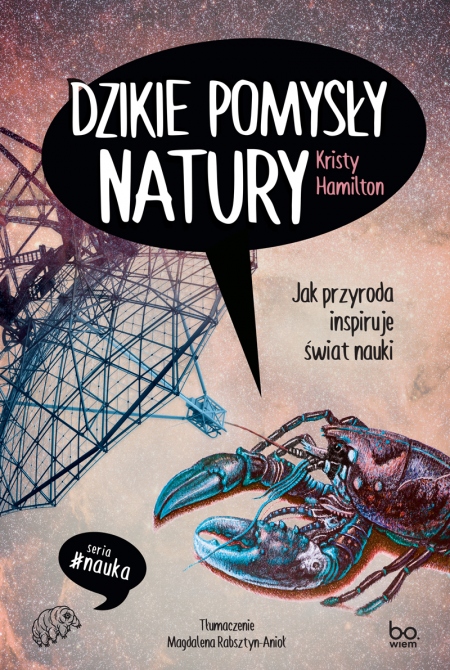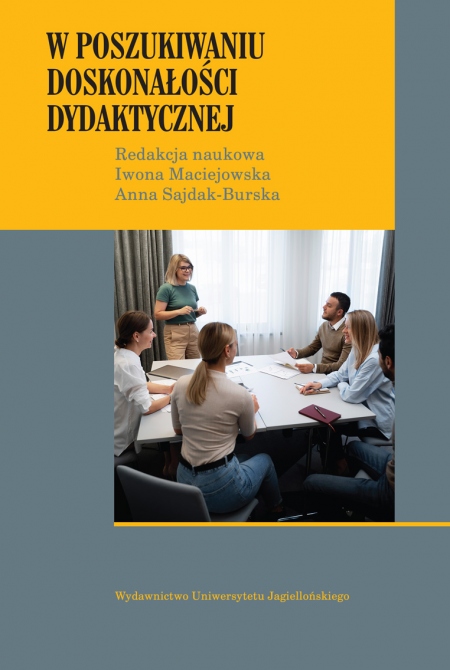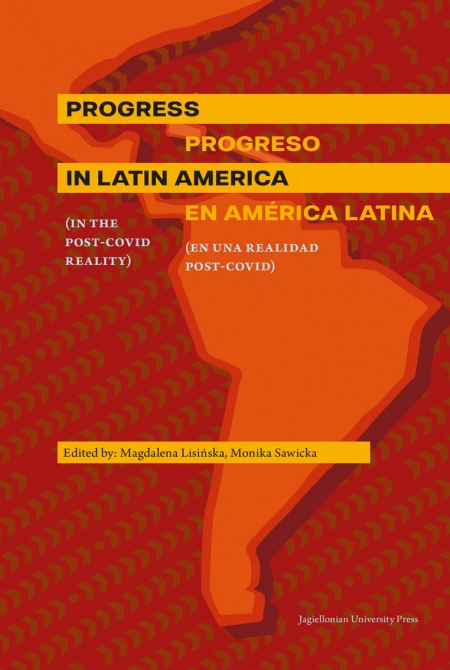
Socjologiczna agora
Edited by: Kaja Gadowska
Pages: 224
Book format: 15,8x23,5 cm
Publish date: 05.07.2023
E-book publication date: 07.06.2023
Book description
In the midst of a pandemic, the Jagiellonian University’s Institute of Sociology (in collaboration with its Interdisciplinary Center for Socio-Legal Analyses as well as the Polish Sociological Association) organized a series of Master Lectures. Presented virtually and open to the general public, these meetings with eminent Polish scholars addressed the most crucial and tenacious issues of our times. Active in their homeland as well as globally, the speakers are recognized specialists in sociology, jurisprudence, history, social work, theology, and political science. The format encompassed a lecture followed by an online discussion with all interested attendees; the texts found herein comprise the fruits of those encounters. Disregarding geographic, temporal, and physical divides, this cyberagora created a space in which masters could find themselves amidst colleagues and students, sharing ideas, views, and experiences drawn from various academic disciplines and social milieux.
About the Editor
Kaja Gadowska – Professor and Director of the Jagiellonian University Institute of Sociology, Vice President of the European Sociological Association and Head of its Policy Committee (2019–2021, 2021–2023), member of the Polish Sociological Association (PSA) Board of Directors (2018–2021, 2021–2024), and Chair of the PSA’s Sociology of Law Section (2019–2022). Her interests focus on public sphere dysfunction and the connections between politics, economics, and administrations in postcommunist coun- tries. Principal investigator for several grant projects, she has also authored or coauthored numerous texts published in Poland and abroad. Among the more recent are Dysfunkcje administracji: Służba cywilna w perspektywie neoinstytucjonalnej (Administration Dysfunctions: Civil Service from a Neoinstitutional Perspective, 2015), Legal Change in Post-Communist States: Progress, Reversions, Explanations (2019, coedited with Peter Solomon, Jr.) as well as the articles, “The Process of Creating Civil Service in Poland in the Perspective of the New Institutionalism” in Civil Service in Poland—20 Years of Experiences and Prospects for Changes (2018), and “Poland: Opening the Legal Professions” in Lawyers in 21st-Century Societies (2020). Her work has won, among others, the Stanisław Ossowski and Klemens Szaniawski awards. She has been a visiting professor at Tel Aviv University, Heidelberg University, Saint Petersburg State University, Charles University in Prague, Tamkang University in Taiwan, the University of Jordan, International University of Rabat, and Imam Khomeini International University in Iran.
Sztompka, Łętowska, Kubik, Fuszara, Zajadło, Skąpska, Kula, Frysztacki, and Polak—all eminent representatives of contemporary social and humanistic thought— confront the most insistent and imperative problems of the early 21st century. In this volume, these outstanding social scientists confront issues most vital to contemporary society: trust and responsibility, populism and democracy, new social movements, interpretations of the law and legal nihilism, a sense of community, dilemmas and tensions inherent in the welfare state, and the social position of an ecclesiastical system. The series of master classes, which forms the basis of this book, was presented during the height of the COVID-19 pandemic, becoming a space for exchanges of thoughts and experiences among individuals epitomizing diverse academic disciplines and social milieux. A Sociological Agora is the voice of those not indifferent to the future of the world.
Edited by
Kaja Gadowska

ISBN: 978-83-233-5085-9
e-ISBN (pdf): 978-83-233-7301-8
Country of producer: Poland
Open Access
All rights reserved. Open access permitted within the scope of fair use of protected works.
RECOMMENDED BOOKS
NEW BOOKS

Socjologiczna agora
Choose chapters to buy:
Order value:
0.00 zł
